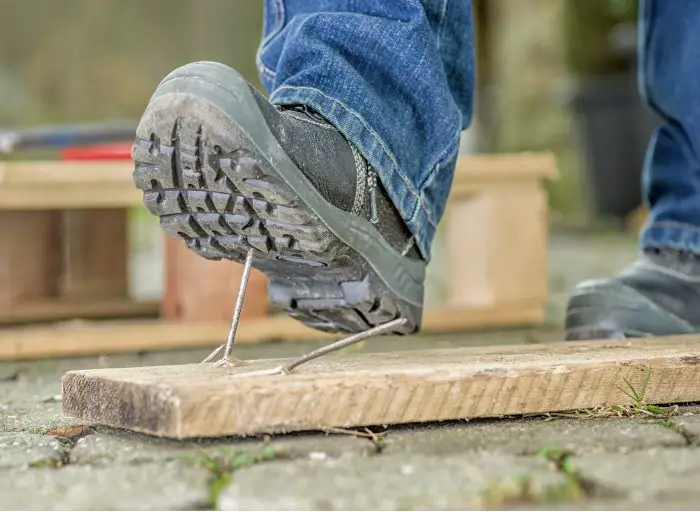Work boots can be warm in the summer. As you labor through your day, you will want to have durable and comfortable hot weather boots. Here are the top 5 hot weather work boots:
Top 5 hot weather work boot brands
- Irish Setter work boots come with a soft or
reinforced toe. For summertime work, consider a 6-inch boot instead of an eight or 9-boot. Six-inch will be lower on the ankle, so therefore less warm. - There are safety boots that accommodate all sorts of working conditions. Timberline carries a variety of boots and shoes for your workload. These boots come in steel toe, slip-resistant, or electrical hazards. Also, there are different heights to the boots. You have many to choose from; hiking style shoes to 10-inch boots.
- Another brand to consider is Thorogood; the USA made products provide a variety of different styles. One being a pull-up Wellington, which is an 11-inch boot. It also comes waterproof.
- Bates Footwear is more of a military-style boot that can be worn for work. These comfortable all-weather boots last a long time. There is hot weather composite style footwear to choose, including for the desert. Bates has supplied to the military for many years.
- Carhartt includes non-safety boots as well as a variety of other choices.
Hot weather work boot factors to consider
When shopping for the top five hot weather work boots, not only do you want to find comfort, you want to find a boot that keeps your feet cooler in the summer heat. A low height boot would help. One thing to also consider is what type of sock to wear. You don’t want to wear a wool sock in the summertime.
There are other factors to consider. To reduce foot stress, find a boot that supports your feet and ankles so that you can lessen fatigue as well. Improve productivity by wearing a boot that is comfortable and can be worn for long periods. Comfort will assist in concentrating on your job instead of your sore feet.
Protection from injury should be on the list. Distribute the shock forces equally so that your feet, lower back, knees, and hips are protected by potential substantial impacts. Adequate support is essential, as well. Keeping your feet in complete comfort will reduce painful joints.
The types of work boots are commonly classified according to their unique features:
Steel Toe
Integrated steel caps keep your feet protected from heavy or sharp objects. Usually, this style of footwear comes with a protective midsole plate that will keep your sole protected from being punctured from the bottom. There are composite protective toes, but they are not as durable as steel toe. However, composite material is better for electrical and live wire exposure.
Electrical Hazard
This type of boot is right if you are exposed to electrical. Some of these boots are insulated and non-conducting. You will not experience electrical shock, and it prevents static from building up.
Soft Toe
This style of Leather seems to be the most right for flexibility and is lightweight. Suitable for electrical hazards and are slip-resistant. If you are not wearing steel toe or composite, this would be the right choice.
Comfort
Several factors can determine comfort, such as how the boots fit, its size, the materials used, and the soles. You don’t want a shoe to tight or to lose. A pair of boots that can be laced up will provide you to adjust the fit for comfort. The weight of the footwear can enhance or reduce your support, especially if you have to walk a lot.
Durability
When you buy footwear, you want it to last. Durability is another thing to consider. You don’t want to buy a product that lasts only a few weeks. The average cost of work boots is $150.00. Find a boot that will last a long time.
High-Quality Material
Leather seems to be the most durable. It protects and supports your feet. But for breathability and flexibility, a combination of mesh and synthetic materials might be the way to go.
So there you have it. Based on the demands of your work, there are great choices to choose from. Don’t be the guy whose Workers’ Compensation claim is denied because your boots were not in good repair.

